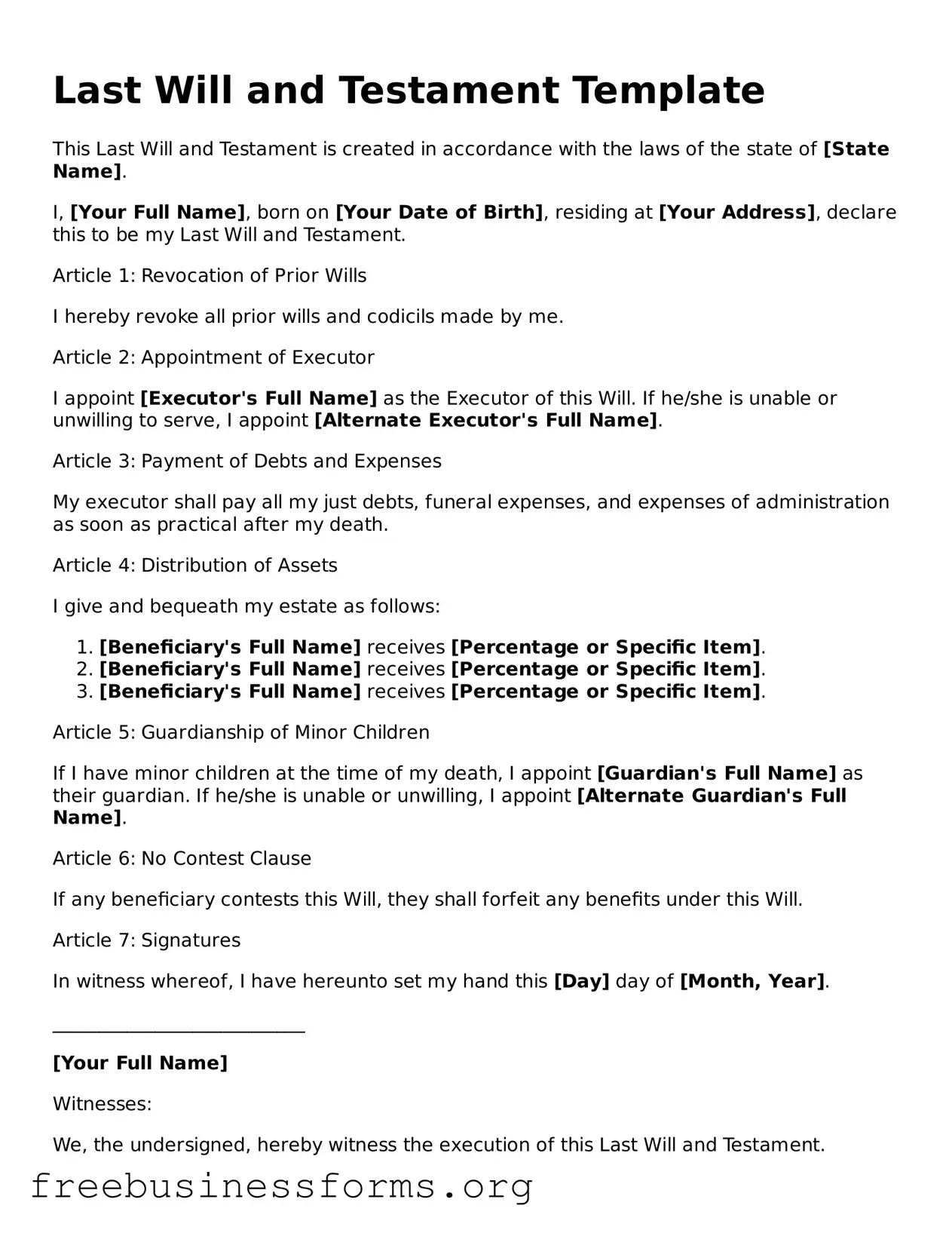Official Last Will and Testament Form
A Last Will and Testament is a legal document that outlines an individual's wishes regarding the distribution of their assets after death. This essential form serves to ensure that one's intentions are honored and can provide clarity for loved ones during a difficult time. Understanding its importance can help individuals take proactive steps in planning for the future.
Open Form Here

Official Last Will and Testament Form
Open Form Here

Open Form Here
or
↓ PDF File
Quickly complete this form online
Complete your Last Will and Testament online quickly — edit, save, download.